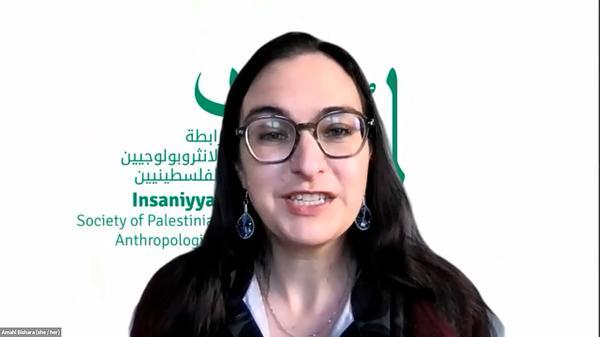Would you like to see your presentation here, made available to a global audience of researchers?
Add your own presentation or have us affordably record your next conference.
keywords:
palestine
fieldwork
decolonization
Since the 1993 Oslo Peace Accords, Israel has deepened colonization and the practices of contorol in myriad ways, increasing settlement expansion, constructing a separation wall, deepening urban apartheid in Jerusalem, intensifying mass incarceration, continuing a refusal of return for Palestinian refugees, and implementing a catastrophic blockade of Gaza. Israeli settler colonialism also presents a problem of knowledge production itself: Palestinians have long been dismissed as having a tenuous relationship to the production of knowledge (e.g. Said 1984). Still, recent years have seen Palestine and the Palestinians become “increasingly admissible as subjects for anthropological inquiry” (Furani and Rabinowitz 2011: 476). Indeed, ethnographic accounts on a range of subjects flourished as anthropologists began to “question Israel’s efforts to repress Palestinian nationalism and to normalize its own colonial and racial character” (ibid 481). Among those subjects is how Palestinian political expression and expression about Palestine is restricted by academic institutions and how Palestinians and their allies can respond to this situation. When the very act of writing Palestinians into a history of the present--or articulating Palestinian identity in the street--is criminalized or stigmatized, including by being equated with anti-Semitism, what are the stakes of a politically engaged anthropology of Palestine? What are our ethical obligations as Palestinian anthropologists, and allies, to engage in what Michel Foucault has problematized as parrhesia (1983)•that is, truth telling, or speaking truth to power, even when we know that to do so is to face the dangers of racial and epistemic violence? What are our responsibilities if we have the “privilege” of operating from the North American academy but face the possibility of virulent assaults on our character and reputation and indeed the prospect of losing our careers? This panel brings together a group of Palestinian anthropologists operating in Israeli and US institutions and allied scholars of the Israeli state to discuss the ethical implications of producing anthropological knowledge on Palestine and the Palestinian people across various spaces. We consider how educational institutions--primary, secondary, and tertiary--can limit how young Palestinians in Israel see themselves. Nevertheless political organizing building on Palestinian values like sumud, or steadfastness, and the building of independent academic institutions can transform possibilities for expression. We address how the Israeli security state also can impact North American higher education in spurious ways. We consider how Palestinians in the West Bank--who may have long seemed to be at the center of the Palestinian national project--are limited in their political expression by the repression of the Palestinian Authority and multifaceted violences of Israeli military occupation. While we will focus on the limitations on speech that arise depending on one’s geographic location in Israel’s 1948 territories, the Occupied Palestinian Territories, or North America, we will raise questions relevant to any anthropologist working in alliance with marginalized groups speaking truth to power and struggling for justice and liberation. If, as Deeb and Winegar argue, “Israel-Palestine politics can be considered a bellwether of anthropology’s future,” (181) parrhesia in Palestine can help advance the project of “decolonizing anthropology” (Harrison 1991).

